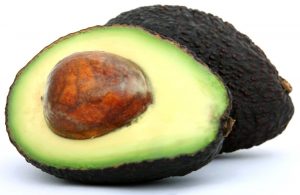 The foundation of good health is a nutritious, well-balanced diet coupled with physical activity and not smoking. Healthy eating includes the consumption of heart-healthy fats, carbohydrates, high-quality protein, minerals, vitamins, and water in the foods you take while reducing your intake of alcohol, saturated fats such as avocado toast, and processed foods. Eating this way promotes optimal body weight, helps maintain the body’s everyday functions, and can help prevent disease.
The foundation of good health is a nutritious, well-balanced diet coupled with physical activity and not smoking. Healthy eating includes the consumption of heart-healthy fats, carbohydrates, high-quality protein, minerals, vitamins, and water in the foods you take while reducing your intake of alcohol, saturated fats such as avocado toast, and processed foods. Eating this way promotes optimal body weight, helps maintain the body’s everyday functions, and can help prevent disease.
Overall Health
The nutrients contained in the foods that you eat support the day-to-day activities, protect cells from environmental damage, and repair any cellular damage likely to occur. Protein helps rebuild injured tissue and promotes a healthy immune system. Fats and carbohydrates both fuel the body, while minerals and vitamins function throughout the body supporting the body’s processes.
Vitamins C, E, and A, for instance, act as antioxidants that protect the cells against toxins, while the B vitamins help in extracting energy from the foods you eat. Phosphorous and calcium keep the bones strong, while potassium and sodium help in transmitting nerve signals. Without a healthy diet, it is easy to compromise any of the essential functions above.
Regulating Weight
Besides the quality of foods you eat, the quantity matters too when thinking about good eating habits. Consuming a similar number of calories to the ones you burn ensures that your weight stays steady over time. On the other hand, consuming more calories than you burn leads to weight gain since the body converts the extra calories to fat.
If you have an accumulation of fat tissue in the body, your risk of developing one or multiple health problems including hypertension, heart disease, cancer, diabetes, and respiratory issues increases. A healthy meal plan that doesn’t include excess calories can help you feel better as well as prolong your life.
Preventing Disease
Obesity is far from the only nutrition-related cause of disease onset and/or progression. Too little or too much of certain nutrients may also contribute to health problems.
For example, a lack of calcium in the diet may predispose you to developing osteoporosis, or weakening of the bones, while too much saturated fat may cause cardiovascular disease while too few vegetables and fruits in your nutrition plan has been linked to a higher incidence of cancer.
To ensure that the body has the nutrients it needs to avoid various health problems, it can be a good idea to consume foods from a wide variety of sources.
Vegetables and Fruits: Do You Get Your 5 Daily?
Vegetables and fruits are an excellent source of minerals, vitamins, and fibre and should make up over a third of the food that you consume each day. It is advisable to eat not less than 5 portions of various vegetables and fruits each day.
The vegetables you eat can be juiced, dried, canned, frozen, or fresh. Available evidence suggests that people that eat not less than 5 portions of vegetables and fruits daily are at a lower risk of stroke, heart disease, along with some cancers.
Eating 5 portions isn’t as difficult as it may sound.
1 portion is:
– 30g dried food, which is kept to mealtimes
– 80g canned, fresh, or frozen vegetables and fruits
– Just 1 banana, apple, pear or other similar-sized fruit is 1 portion each
– 150ml glass of smoothie or fruit juice, but don’t have more than 1 portion a day since those drinks are sugary and may damage teeth.
Considerations
If you aren’t used to eating a healthy diet that promotes your well-being, gradual changes will help you improve how you eat in the long-run. For instance, you can take water instead of calorie-loaded, sugary drinks with water and substitute full-fat dairy products with low-fat dairy products.
Buying lean meats rather than fatty cuts and whole grains rather than refined grains can lower your intake of unhealthy fats and increase your intake of dietary fibre. Vegetables and fruits contain less sodium compared to canned, and snacking on crunchy, fresh produce such as apples, carrots, and cucumber slices is healthier than the salt and fat in French fries.
